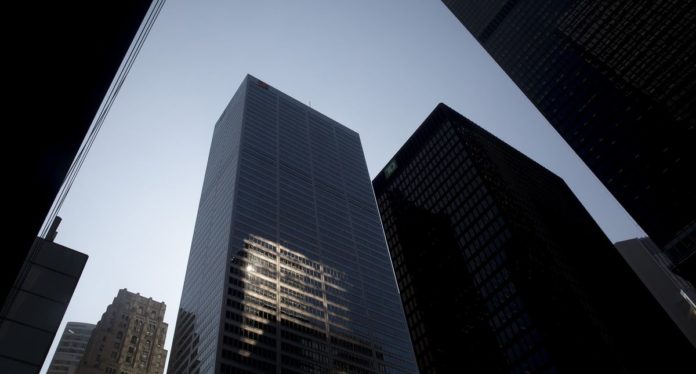
NEW YORK – Hundreds of electronic chat transcripts prove some of the world’s biggest banks rigged a multitrillion-dollar corner of the bond market, according to an amended lawsuit from investors allegedly harmed by the behavior.
The bonds in question are known as supranational, sub-sovereign and agency debt — often called SSA bonds. A Bloomberg analysis last year pegged it at a $9 trillion to $15 trillion market. Issuers include international development organizations, government-sponsored agencies like Fannie Mae, and some sovereign issuers including German states.
The amended complaint filed Monday added five more banks as defendants: Citigroup Inc., BNP Paribas SA, HSBC Holdings PLC, Toronto-Dominion Bank and Royal Bank of Canada, plus a former trader who worked for Bank of America Corp., Citi and TD. They either declined to comment or didn’t immediately respond to requests for comment.
Dozens of pages of the transcripts are quoted in the filing, but they’re redacted in the publicly available version. The investors, led by the pension plan for an iron workers’ union in Pennsylvania, said they obtained the chats under a confidentiality agreement. There was no detail on who furnished the information or why. The case hasn’t reached the stage where the parties exchange evidence, and it’s rare that such detailed information is made available at this stage.
‘Smoking gun’
“Rare is the antitrust case where smoking gun evidence exists, and rarer still does it exist at the pleading stage,” according to the lawsuit. “Nevertheless, that is the situation here.” The chats are said to cover more than 300 trading days.
Bloomberg has previously reported that the U.S. Justice Department is conducting a criminal investigation into whether this bond market was rigged. The U.K. Financial Conduct Authority and European Union are also looking into the matter.
Banks have been accused of manipulating other markets, including currencies, interest-rate derivatives and precious metals. In some instances, those cases have led to multibillion-dollar settlements, penalties and criminal prosecutions. One of the lead law firms for the plaintiffs in the SSA case, Quinn Emmanuel Urquhart & Sullivan LLP, reached a $1.87 billion settlement in 2015 with banks including Goldman Sachs Group Inc. and JPMorgan Chase & Co. in a case alleging the brokers conspired to limit competition in the market for credit-default swaps.
Illiquid debt
SSA bonds are fairly illiquid and trade privately between banks and their customers, giving financial firms an upper hand when pricing them. But investors like them because they are perceived as high-quality assets — similar to government debt, but with higher yields.
The pension fund’s lawyers hired experts to review market data in the SSA market, finding the difference in prices to buy and sell the bonds were much further apart than similarly rated sovereign debt. The spread on some bonds was 7 basis points, compared with 1.5 basis points if the SSA securities were traded competitively. A basis point is equal to 0.01 percent.
The lawsuit — which also accuses Bank of America, Deutsche Bank AG, Credit Agricole SA, Credit Suisse Group AG and Nomura Holdings Inc. of wrongdoing — said the collusion between the traders began as early as 2005, and that they stayed in constant contact through telephone calls, in-person meetings and chat rooms on the Bloomberg terminal. Some chat rooms were permanent, while others were created and shut down each day. The filing accuses the banks of fixing prices that were quoted to investor clients, steered business to each other and shared confidential client information with each other “whenever it could help them rip off their customers,” according to the lawsuit.
Worse prices
“As a direct result of the dealer defendants’ agreement not to compete, investors unwittingly transacted at prices worse than one would expect in a normally operating, competitive market,” according to the lawsuit.
The individual traders named as defendants in the case live in the U.K. and maintained close social ties in addition to working together, according to the complaint.
“During the period of this conspiracy, collusion was rampant at these Wall Street banks,” according to the lawsuit. “They had a pervasive culture of pursuing short-term profits at any cost.”
The case is In re. SSA Bonds Antitrust Litigation, 16-cv-03711, U.S. District Court, Southern District of New York (Manhattan).












